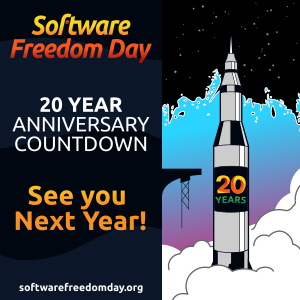
This week the ALA (and many libraries) are celebrating Banned Books Week. But as a recent Wall Street Journal editorial mentioned, "banning" is not the same as challenging, and it is challenging that the ALA seems to be condemning. And most challenges are not successful. The small number of challenges (and the even smaller number of successful ones) tells me that we have won this battle.
Why are we still devoting so much attention to this issue? We have limited resources, and the world has a limited attention span. Why not spend our time on a battle that we are still fighting?
At this year's Access meeting in Canada, author Cory Doctorow suggested librarians use what influence we have to promote rational copyright laws-- you know, the kind that protect the greater good of society (as copyright was originally intended), instead of using copyright to shore up old business models with increasingly draconian penalties.
The "orphan books" being fought over in the Google Book Settlement are mostly the result of continually extending copyright coverage beyond normal commercial viability. Libraries need to be making the case that publishers are not the only party at the table here-- someone has to stand up for the rights of society to it's own cultural legacy.
The old saying was that generals were always preparing to fight the last war over again, rather than adapting strategies and tactics to a changing world. We should not be guilty of the same mistake. The battle for librarians today is over laws that restrict access to information-- not through banning or burning, but through one-sided legislation.
Why are we still devoting so much attention to this issue? We have limited resources, and the world has a limited attention span. Why not spend our time on a battle that we are still fighting?
At this year's Access meeting in Canada, author Cory Doctorow suggested librarians use what influence we have to promote rational copyright laws-- you know, the kind that protect the greater good of society (as copyright was originally intended), instead of using copyright to shore up old business models with increasingly draconian penalties.
The "orphan books" being fought over in the Google Book Settlement are mostly the result of continually extending copyright coverage beyond normal commercial viability. Libraries need to be making the case that publishers are not the only party at the table here-- someone has to stand up for the rights of society to it's own cultural legacy.
The old saying was that generals were always preparing to fight the last war over again, rather than adapting strategies and tactics to a changing world. We should not be guilty of the same mistake. The battle for librarians today is over laws that restrict access to information-- not through banning or burning, but through one-sided legislation.
Powered by ScribeFire.


